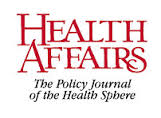While hospitals and providers in 33 states have long enjoyed the ability to extend presumptive eligibility for Medicaid to children or pregnant women, that authority is now being extended in some states to any adults whose income appears likely to fall below 138 percent of the federal poverty level.
The extension of this authority comes via the Affordable Care Act, which also offers states the option of expanding Medicaid eligibility for their residents. Individual states decide whether to extend this authority, which is typically wielded by hospitals, schools, clinics, other providers of care to the Medicaid and CHIP population, Head Start programs, and others.
This policy could benefit many private safety-net hospitals because they serve much higher proportions of low-income patients than the average hospital.
To learn more about changes in extending presumptive eligibility to low-income patients, see the policy brief

